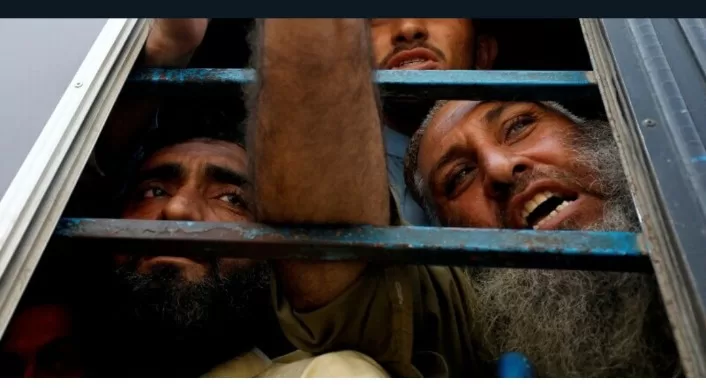As the world watches the heart-wrenching exodus of Afghan refugees from Pakistan, it becomes painfully clear that a harrowing humanitarian crisis is unfolding with profound repercussions. Millions of Afghans, who had sought shelter in Pakistan for generations, are now being branded as “illegal” and “undocumented,” while the very government that had once provided them refuge is washing its hands of responsibility.
To comprehend the gravity of the situation, we must delve into the historical context. Afghans have sought shelter on Pakistani soil for decades, often fleeing the relentless tides of conflict that have inundated their homeland. Pakistan, in its benevolence, extended hospitality and, at times, documentation to these refugees. However, the tide has turned, and these very documents, which once provided a semblance of identity and stability, have been cruelly stripped away, rendering these Afghans stateless.
The dramatic shift in Pakistan’s stance is undeniable, and it is important to emphasize that it is not the fault of the Afghan refugees. They are victims of geopolitical forces far beyond their control. The responsibility for the documentation, or lack thereof, falls squarely upon the shoulders of the Pakistani government. The revocation of these documents has trapped the refugees in a nightmarish limbo, where the prospect of forced repatriation to Afghanistan, a nation grappling with dire humanitarian crises, looms large.
These Afghan refugees, over time, have forged lives in Pakistan that are markedly distinct from their counterparts back in Afghanistan. They have become integral to Pakistan’s social fabric, pursuing education, contributing to the economy, and becoming an indelible part of the country’s rich cultural tapestry. However, the advent of the Taliban’s restrictive policies in Afghanistan has rendered many of these refugees vulnerable once more, especially women and girls, who have had their educational and livelihood opportunities curtailed.
It is perplexing and disheartening to note that the silence surrounding this unfolding tragedy is deafening. The collective silence of Muslim-majority countries, which one would expect to be champions of humanitarian values and the protection of refugees, is particularly confounding. Not a single Muslim-majority nation has offered unequivocal condemnation of Pakistan’s abrupt about-face and the ensuing tragedy befalling the Afghan refugees.
The protracted silence of the Muslim world is a sobering reminder of the incongruence between rhetoric and action, especially when it comes to safeguarding the welfare and dignity of fellow Muslims in times of dire need. The principle of “ummah,” which underscores the unity of the Muslim community, ought to be more than a hollow platitude. It should manifest as tangible support, refuge, and compassion for those experiencing unspeakable suffering.
The world’s failure to address this burgeoning catastrophe is disheartening, and the suffering of these Afghan refugees is a tragic testament to our collective failure as a global community. We have a moral obligation to advocate for the safety, well-being, and dignity of these vulnerable people, for their displacement is not of their making. Our silence, however, is a choice.
In the name of justice, compassion, and human rights, it is incumbent upon us to cast aside this silence, confront the complicity that perpetuates this tragedy, and rekindle the spirit of solidarity, irrespective of faith, that should bind us all as human beings. The silent exodus of Afghan refugees cannot remain unheard any longer.






